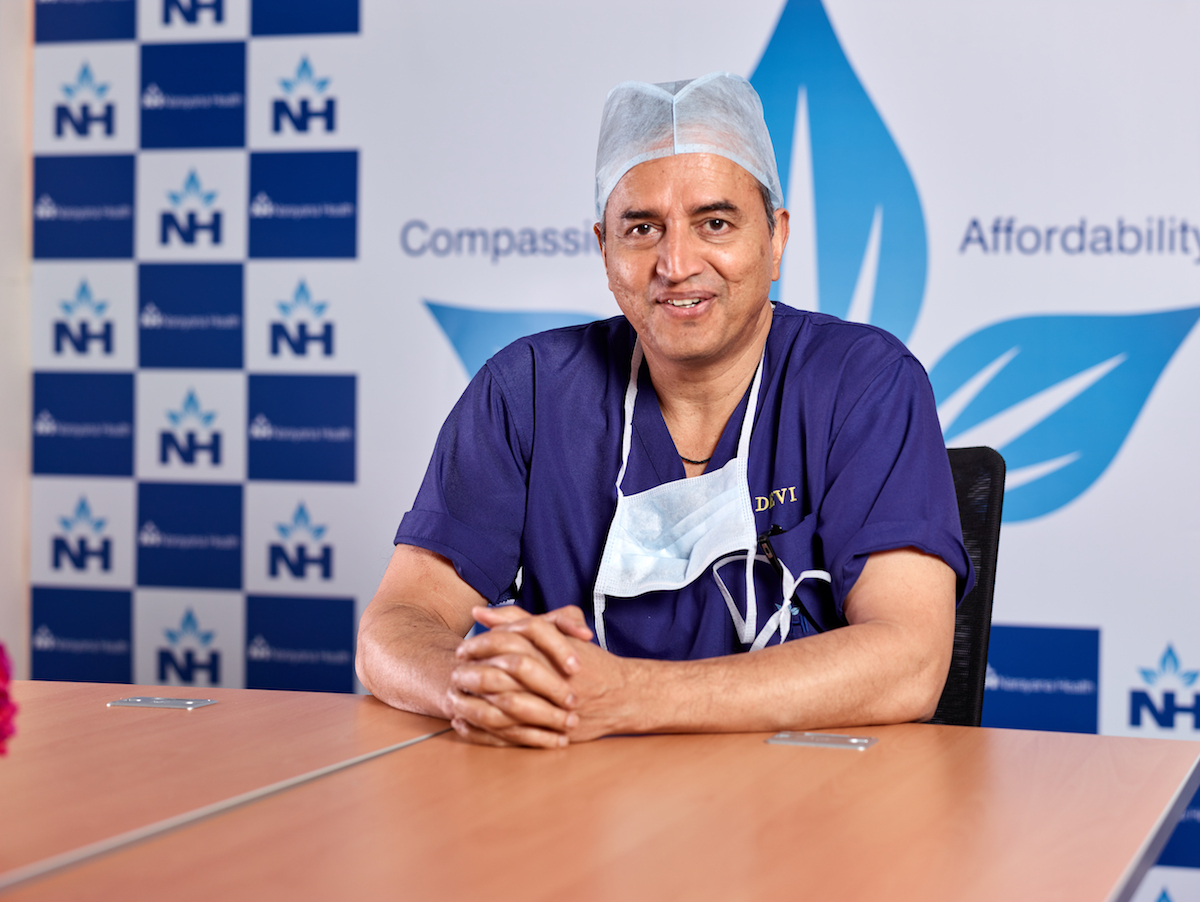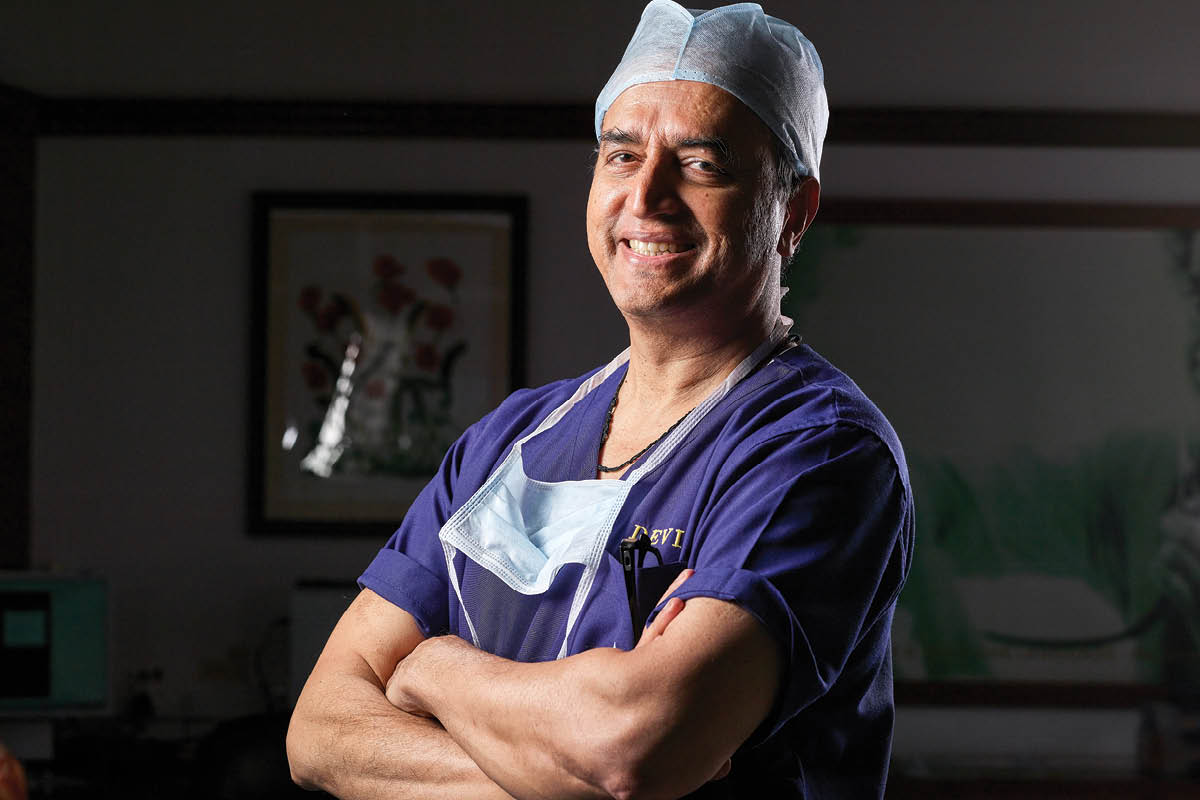In 1967, when Dr Devi Shetty was in fifth standard, he learned of Dr Christian Barnard, the South African who conducted the world’s first heart transplant.
“Our teacher came and announced that somebody took out the heart from a dead body and put it in someone with a heart problem and the man walked out of the hospital,” Devi recalls. “That’s the day I decided I would become a heart surgeon.”
Devi Shetty believes in compassionate care
Devi trained in cardiac surgery at West Midlands cardiothoracic rotation program before working at Guy’s Hospital in London. After returning from London, he began his career at the BM Birla Heart Research Centre in Kolkata, where he was given a case of a nine-day-old baby with a congenital heart problem.
This became the first neonatal heart surgery in India. Since then, Devi has conducted more than 15,000 heart surgeries – 4,000 of these on children – and has gained high acclaim for his services in the medical field.
Devi Shetty has been described as the ‘Henry Ford of heart surgeries’ due to the assembly-line style in which doctors move from one operation to the next in his hospitals.
One of Devi’s most humbling experiences was serving as Mother Teresa’s personal physician for five years. “Her compassionate care impacted me a lot,” he says.
“Her words that inspired me were, ‘Hands that serve are holier than the lips that pray.’ It was like a providential direction that led me to look at healthcare delivery from a totally different perspective.”
Narayana Health prides itself on affordability
Devi has been lauded for his unique approach to health care after establishing Narayana Hrudayalaya (Narayana Health) in Bengaluru, which prides itself on its affordability. “When I returned from England with all the enthusiasm and excitement to change the world, reality struck,” Devi says.
“I realised it was pointless to boast about modern developments in heart care or cancer treatment if 90% of India cannot afford those treatments. Patients who had committed to undergo surgery would not turn up, and when I worked back to know the reason, affordability came up as a major issue. This changed my entire future strategy.”

Devi says charity is not scalable and there are limits for even billionaires to donate; however, scalability is possible via sound business practices that can deliver affordable healthcare.
The Yeshaswini Health Insurance Scheme
This idea spearheaded the development of Narayana, and its affordability was complemented by Devi’s Yeshaswini Health Insurance Scheme which, for only 18 rupees, covers poor farmers for more than 800 types of surgical treatments. Devi was also able to convince the then Karnataka government to adopt the scheme.
“Today, after a little over a decade, we can look back with satisfaction to see more than one million different types of surgeries performed on the needy, rural and poor, with over 100,000 of them being cardiac surgeries. It is also a tribute to our philosophy that no patient is denied treatment due to lack of resources to fund surgeries and treatments,” Devi says.
No patient is denied treatment due to lack of resources.
While the insurance scheme was replicated in Andhra Pradesh and Tamil Nadu, none has been as resilient as Yeshaswini. “We have been fairly successful in making healthcare affordable, but the challenge is huge for a 1.25 billion population and we still have a long way to go,” he says.
Although Narayana Health initially specialised in cardiac care, it has grown to incorporate several other practices such as neurosciences, oncology, nephrology, obstetrics and gynaecology, paediatrics and orthopaedics. Its facilities have expanded to the north and western parts of India, with a base in the Cayman Islands and soon-to-be established centres in Africa.
An opportunity to contribute to global health care
Devi believes healthcare will drive the economy of the twenty-first century. “At US$8 trillion, healthcare is poised to become one of the world’s leading industries, overtaking food and agriculture.”
He adds that with the largest youth population in the world, India has an opportunity to contribute to global health care. “If Cuba can produce six times more doctors than it requires, sending 45,000 of them to Latin America and Africa to earn US$8.2 billion of precious foreign exchange, imagine our advantage,” he observes.
“With few policy changes in medical education and minimal investment, we can convert 600 district hospitals into medical colleges and produce enough doctors, nurses, hospital administrators, paramedics and technicians. Unlike the software industry where we end up supplying white collar labour to the West and allowing them to prosper, we have an opportunity to send our skilled health workers abroad to manage global healthcare.”



